Congratulations!!
11.07.2025 09:38 — 👍 1 🔁 0 💬 1 📌 0Palina Kolvani
@palinakolvani.bsky.social
PhD fellow at the Department of Political Science, University of Oslo
@palinakolvani.bsky.social
PhD fellow at the Department of Political Science, University of Oslo
Congratulations!!
11.07.2025 09:38 — 👍 1 🔁 0 💬 1 📌 0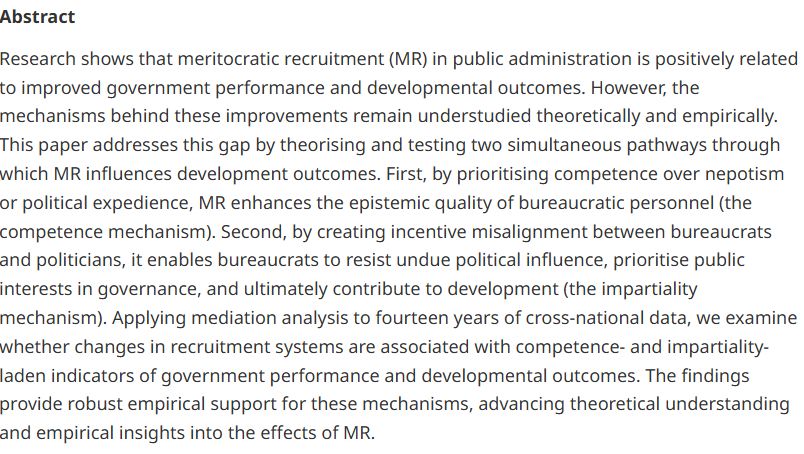
📢 New article
👥 @palinakolvani.bsky.social & Marina Nistotskaya
🔎 On mechanisms of meritocratic recruitment: competence and impartiality
📖Open Access in Journal of Institutional Economics.
🔗 doi.org/10.1017/S174...
Fantastic to see the second paper of my PhD published in the Journal of Institutional Economics!
14.04.2025 10:28 — 👍 4 🔁 1 💬 0 📌 0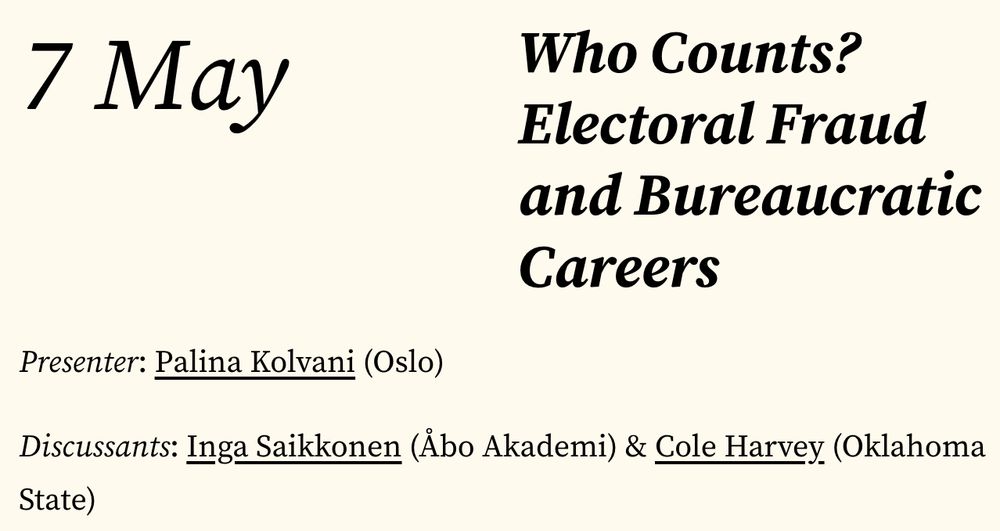
📢 Next Tuesday (8am PST, 11am EST, 4pm UKT)
Palina Kolvani (Oslo) will present her work "Who Counts? Electoral Fraud and Bureaucratic Careers".
Inga Saikkonen (Åbo Akademi) & Cole Harvey (Oklahoma State) will discuss.
Excited to see the Elgar Encyclopedia of Political Sociology published online, where Marina Nistotskaya and I have co-authored an entry on Bureaucracy: www.elgaronline.com/display/book...
20.12.2023 17:30 — 👍 9 🔁 1 💬 0 📌 0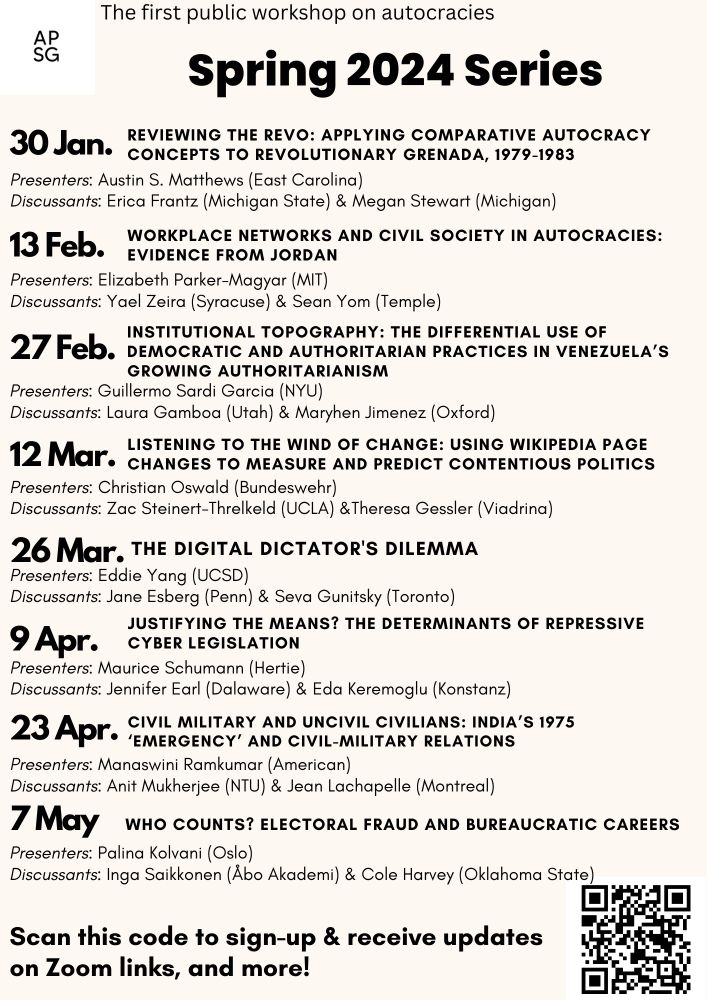
Polisky Dictatorsky !!
SPRING 2024 SERIES SCHEDULE IS OUT
We are thrilled to announce a new season featuring fantastic promising work and discussants!
Make sure to participate by subscribing at tinyurl.com/bddy4bta (for Zoom links and updates)
A 🧵with details on each meeting:
And, finally, our findings suggest that the advancement of both democracy and state capacity can potentially mitigate the consequences of pandemics in the future. 15/
28.11.2023 17:29 — 👍 1 🔁 0 💬 0 📌 0Our findings also demonstrate that official statistics on COVID-19 cannot always be trusted, especially in low-capacity and autocratic countries. Please take care when comparing numbers across countries! /14
28.11.2023 17:28 — 👍 1 🔁 0 💬 1 📌 0In many (but not all) autocracies, the right incentives to fight the pandemic may not be there (easier then to manipulate data on deaths). In weak-capacity democracies, incentives may be there, but not ability to act on them. 13/
28.11.2023 17:28 — 👍 1 🔁 0 💬 1 📌 0We discuss likely mechanisms in the paper, but briefly: Democracy gives elected politicians the incentives to mitigate deaths, whereas state capacity lets them effectively implement policies to this end. 12/
28.11.2023 17:28 — 👍 0 🔁 0 💬 1 📌 0Democratic countries with high state capacity had the lowest number of excess deaths and more accurate reporting of COVID-19 deaths. 11/
28.11.2023 17:27 — 👍 0 🔁 0 💬 1 📌 0High-capacity countries were more likely to both have lower death tolls and provided more accurate statistics on COVID-19 deaths. 10/
28.11.2023 17:24 — 👍 0 🔁 0 💬 1 📌 0Analyzing data from up to 172 countries, we find that democracy is positively related to the number of officially reported deaths but not the number of excess deaths from COVID-19. Such differences are largely driven by underreporting in autocracies. 9/
28.11.2023 17:24 — 👍 0 🔁 0 💬 1 📌 0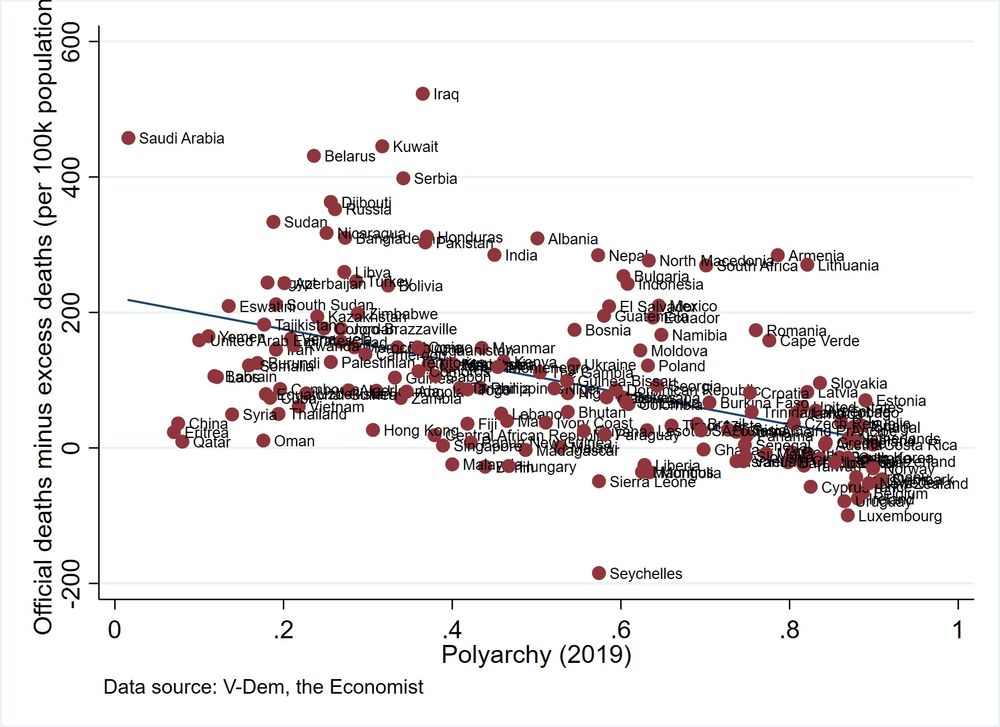
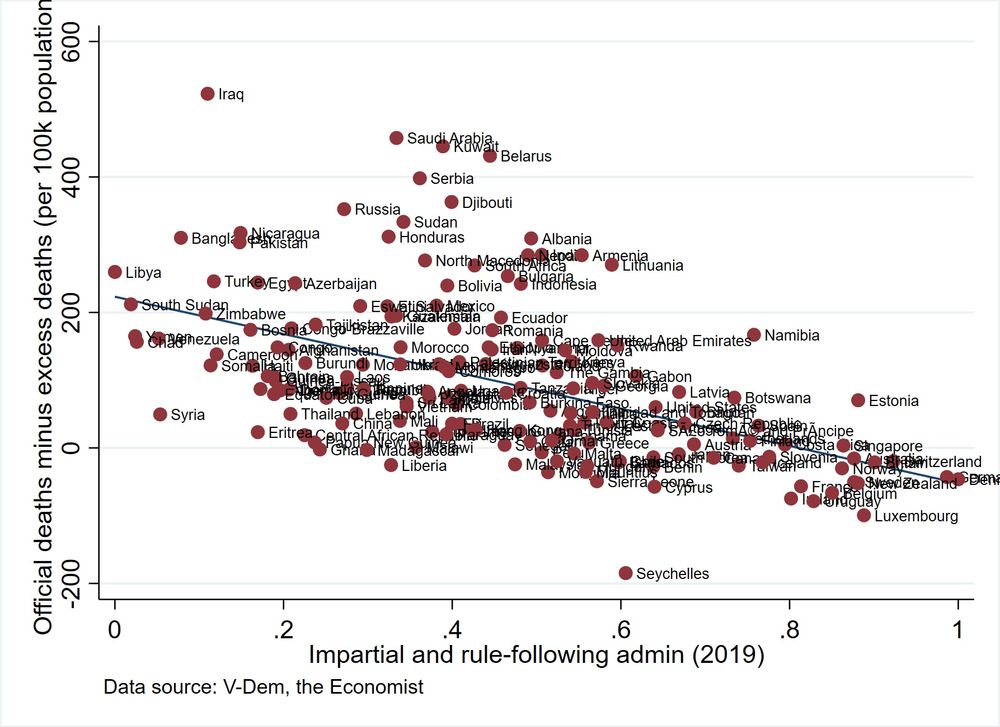
We also use data on excess mortality to construct a proxy of underreporting, which is negatively correlated with both democracy and state capacity. Autocracies and low-capacity states dramatically under-reported the number of deaths. 8/
28.11.2023 17:23 — 👍 0 🔁 0 💬 1 📌 0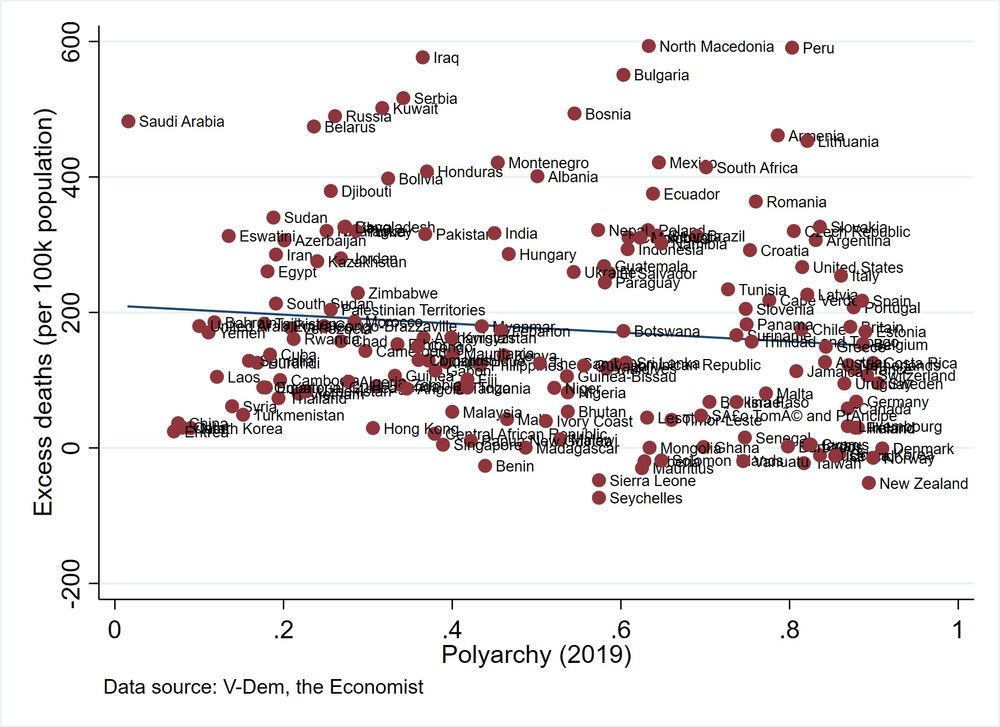
Instead of officially reported COVID-19 deaths, we use an estimate of excess mortality from a fantastic new dataset by
the Economist. This measure is actually (slightly) negatively correlated with democracy. 7/
We argue that conclusions drawn from official data might be misleading. Countries might not have had the capacity to accurately report COVID-19 deaths. And, even if such capacity exists, official statistics might be have been manipulated, which is much easier to do in autocracies. /6
28.11.2023 17:22 — 👍 2 🔁 0 💬 1 📌 0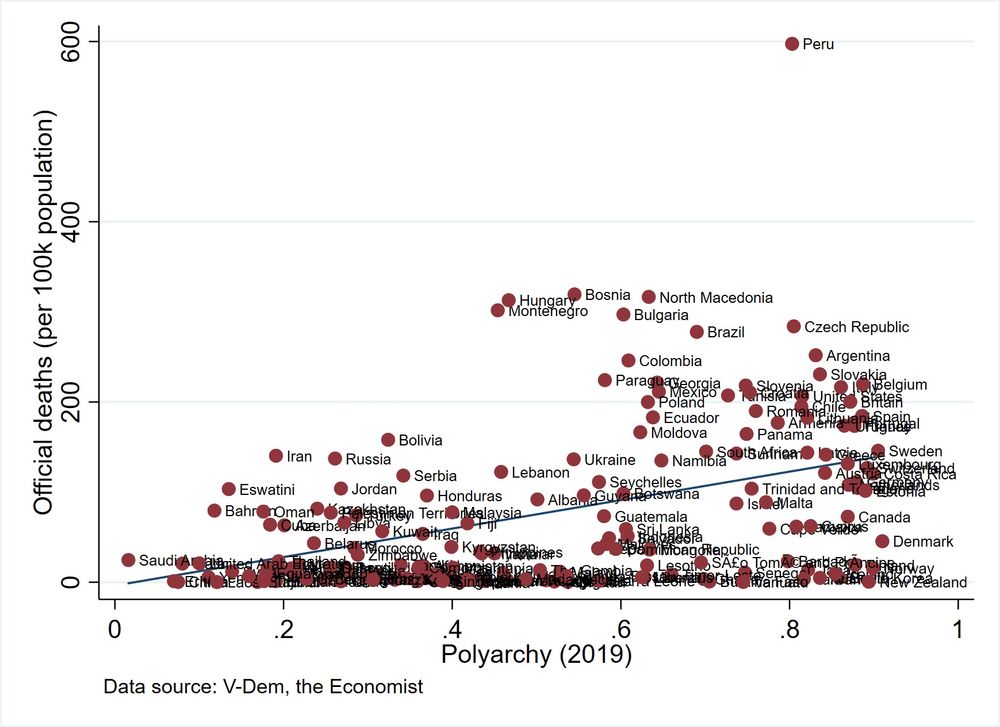
Then again, democracy was positively correlated with the number of COVID-19 deaths per 100,000 inhabitants, if we use on official statistics reported by governments. 5/
28.11.2023 17:21 — 👍 2 🔁 0 💬 1 📌 0For instance, when the BBC asked how China could build a hospital in six day, one of the responses was: "China has a record of getting things done fast...This authoritarian country relies on this top down mobilisation approach." (www.bbc.com/news/world-a...) 4/
28.11.2023 17:20 — 👍 2 🔁 0 💬 1 📌 0A popular notion was that a high-capacity authoritarian system like China is best suited for dealing the COVID-19 pandemic, compared to weaker-capacity states and even established democracies such as the US and Italy.
3/
In this paper, @chknutsen.bsky.social and I show that countries that combine democracy and state capacity both experienced fewer COVID-19 deaths and had less under-reporting of deaths. 2/
28.11.2023 17:19 — 👍 2 🔁 0 💬 1 📌 0Very happy to share that our paper with @chknutsen.bsky.social on COVID-19, Democracy and State Capacity has been accepted and is forthcoming in World Politics!
Its earlier version is available as V-Dem working paper here: t.co/d9ChlTJSZK
Short summary in a thread below 1/